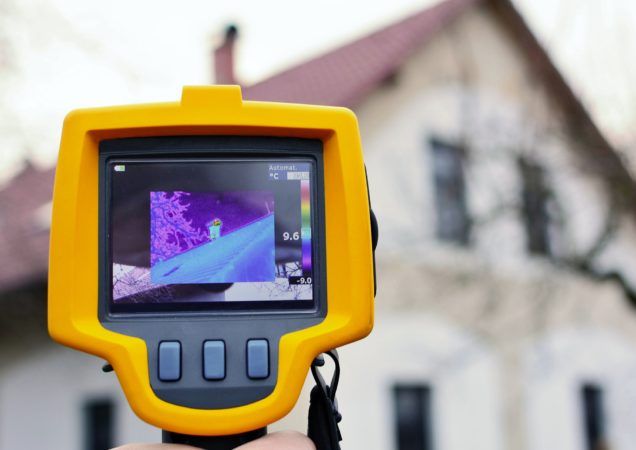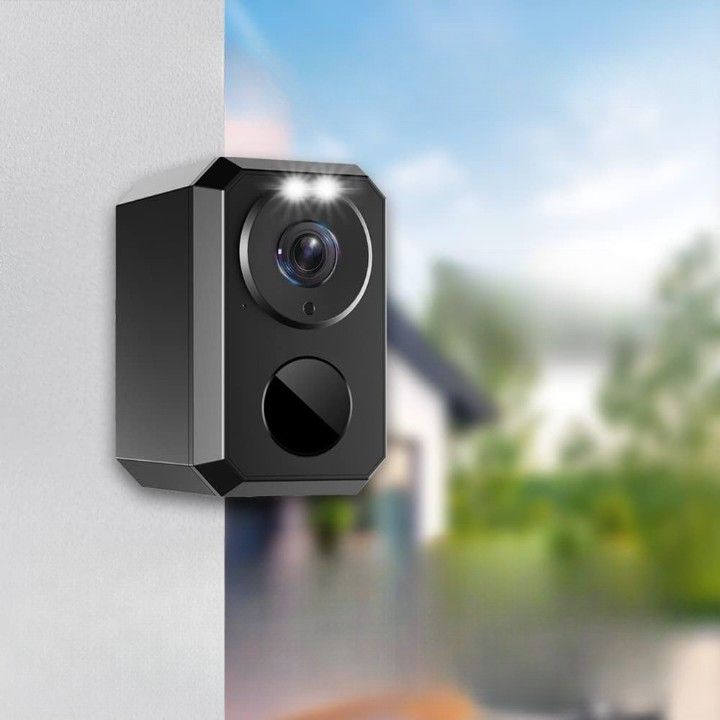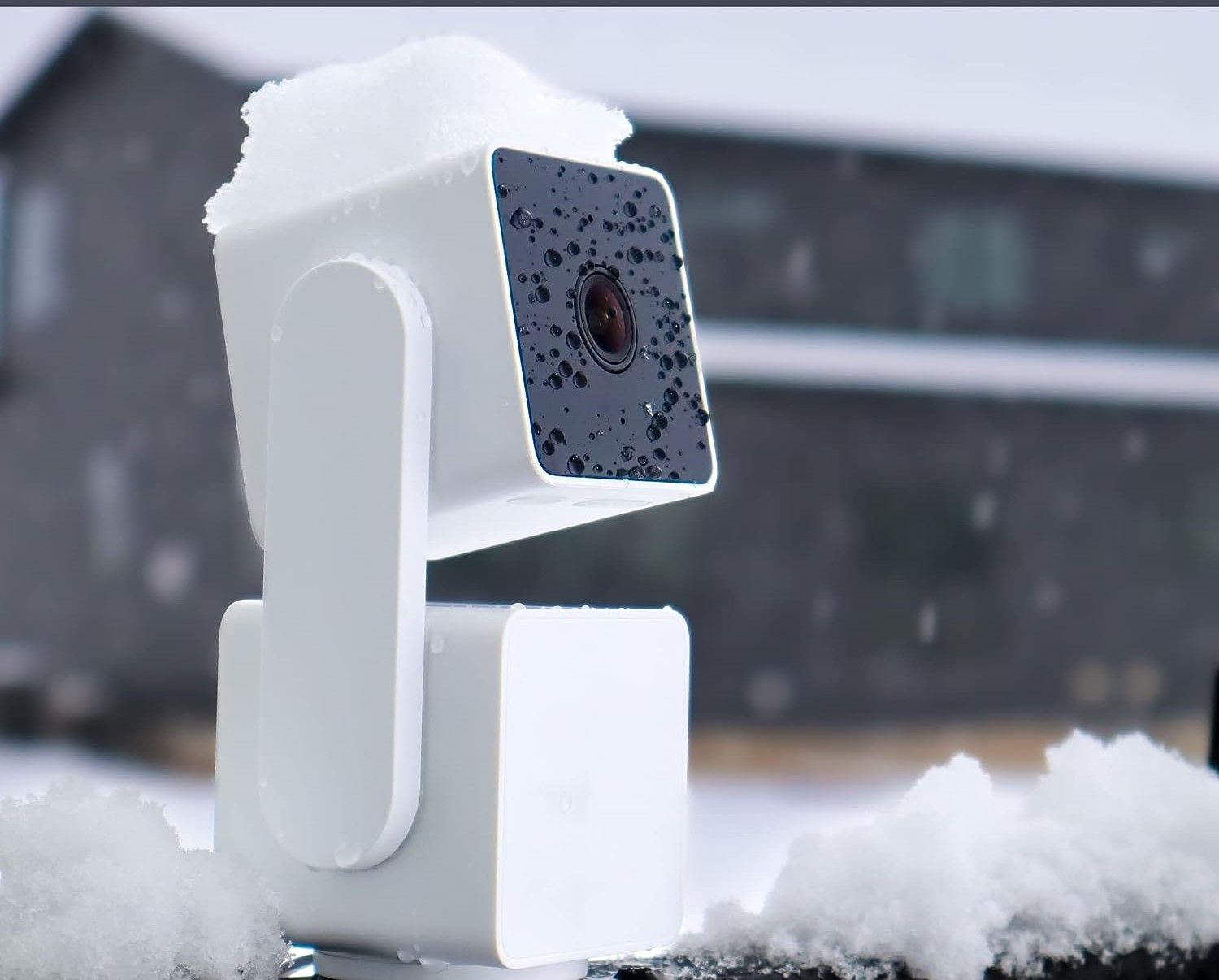In today's fast-paced world, security is a paramount concern for homeowners. With an increasing number of break-ins and security threats, it's crucial to invest in advanced surveillance technology that not only deters potential intruders but also provides valuable evidence in case of an unfortunate event. In this regard, infrared security cameras have emerged as a game-changer in the field of home security. In this comprehensive guide, we will delve deep into the world of infrared security cameras, exploring their features, benefits, and how they can transform your home security system.
Understanding Infrared Security Cameras
Infrared security cameras, often referred to as night vision cameras, utilize cutting-edge technology to capture high-quality video footage even in low light or complete darkness. They are equipped with infrared LEDs that emit infrared light, which is invisible to the human eye but can be detected by the camera's image sensor. This technology allows infrared security cameras to work efficiently in various lighting conditions, including total darkness.
Key Features of Infrared Security Cameras
Night Vision Capability:
Infrared security cameras provide exceptional night vision capabilities, enabling them to capture clear and detailed footage in low light conditions or complete darkness. This feature is essential for outdoor use, where traditional security cameras may struggle.
Motion Detection:
These cameras often come equipped with advanced motion detection technology. It can detect movement on an indoor camera and trigger recording or alerts, helping you stay informed about any potential security breaches.
High-Definition Video Quality:
Many infrared security cameras offer 1080p HD video quality, ensuring that you get clear and sharp footage that can be crucial for identifying intruders or monitoring your property.
Two-Way Audio:
Some models come with two-way audio support, allowing you to communicate with individuals near the camera. This feature is particularly useful for indoor cameras or monitoring entry points.
Smart Features:
With the integration of technology like Amazon Alexa, these cameras can be easily connected to smart home systems. This enables you to monitor your security cameras using voice commands or through your smartphone, providing added convenience and peace of mind.
Micro SD Card Support:
Infrared security cameras often support micro SD cards for local video storage, ensuring that your footage is safely stored in case of network disruptions or tampering.
How Infrared Security Cameras Work
Infrared security cameras work by emitting infrared light that is invisible to the human eye but can be detected by the camera's image sensor. This emitted light illuminates the area in front of the camera, allowing it to capture clear images and videos in low light conditions or complete darkness. The image sensor processes this information and transmits it to the connected surveillance system or device, providing real-time monitoring and recording capabilities.
Benefits of Infrared Security Cameras
Enhanced Home Security:
Infrared security cameras provide round-the-clock surveillance, ensuring that your property is protected even during the darkest hours.
Deterrence:
The presence of these cameras can act as a powerful deterrent to potential intruders, reducing the risk of a break-in.
Evidence Collection:
In the unfortunate event of a security breach, the captured footage can serve as crucial evidence for law enforcement and insurance claims.
Versatile Usage:
Whether you need indoor or outdoor surveillance, infrared security cameras are versatile and adaptable to various environments.
Reduced False Alarms:
Advanced motion detection technology helps reduce false alarms by distinguishing between humans and other moving objects.
Choosing the Right Infrared Security Camera
When selecting an infrared security camera, consider factors such as the night vision range, image sensor quality, and whether it suits your indoor or outdoor requirements. Additionally, assess the camera's compatibility with your existing home security system.

What is an Infrared Security Camera?
An Infrared Security Camera, commonly known as an IR camera or infrared night vision camera, is a type of surveillance camera equipped with infrared (IR) LEDs or illuminators that enable it to capture video footage in low-light or complete darkness. These cameras are often used in security systems to provide continuous monitoring even when traditional visible light is insufficient.
How does an Infrared Camera work?
Infrared cameras work by using infrared light, which is beyond the spectrum of visible light, to illuminate the area being monitored. The camera's IR LEDs emit infrared light, which is reflected off objects and then detected by the camera's sensor. The sensor converts this reflected IR light into a visible grayscale or full-color image, allowing the camera to "see" in the dark.
What are some common issues with Security Camera Infrared (IR)?
Common issues with IR security cameras include:
Overexposure: If the IR LEDs are too close to the camera lens, they can cause overexposure, leading to white-out areas in the footage.
Underexposure: On the other hand, insufficient IR illumination can result in dark or unusable footage.
Glare: IR light can bounce off reflective surfaces, causing glare or hot spots.
Limited Range: The effective range of IR illumination varies between cameras, and some may not cover larger areas adequately.
How many hours will a DVR record?
The recording capacity of a DVR (Digital Video Recorder) depends on various factors, including the storage capacity of the hard drive, the camera's video quality settings, and the number of cameras connected. A typical DVR can record anywhere from a few days to several weeks of footage before needing to overwrite old recordings. Upgrading the hard drive or using cloud storage can extend recording time.
How do hidden cameras work?
Hidden cameras, also known as spy cameras or covert cameras, are designed to be inconspicuous and discreet. They can work in various ways, including:
Wired: Some hidden cameras are physically wired to a recording device or a network, allowing real-time monitoring or recording.
Wireless: Others are wireless and transmit video signals to a receiver or a connected device, such as a smartphone or computer.
Battery-Powered: Some hidden cameras operate on rechargeable batteries, making them portable and easy to place in inconspicuous locations.
Recording Devices: Hidden cameras often work in conjunction with DVRs, memory cards, or cloud storage to store captured footage.
What is the difference between a wired and a wireless security camera?
The main differences between wired and wireless security cameras are:
Connectivity: Wired cameras require physical cables (usually Ethernet or power cables), while wireless cameras connect via Wi-Fi or other wireless technologies.
Installation: Wired cameras may require professional installation due to cable routing, whereas wireless cameras are generally easier to install.
Reliability: Wired cameras tend to be more reliable as they are not susceptible to wireless interference, but wireless cameras offer greater flexibility in placement.
Power Source: Wired cameras often require a constant power source, whereas wireless cameras can run on batteries or be powered by a wired connection.
How well can the camera work in different lighting conditions?
The camera's performance in various lighting conditions depends on its specifications. Many modern security cameras are equipped with features like Wide Dynamic Range (WDR) and IR illumination for improved performance in low light and challenging lighting conditions. It's important to choose a camera that suits your specific lighting environment, whether it's low light, bright sunlight, or nighttime.
Is the security camera vandal-resistant?
Vandal-resistant security cameras are designed to withstand physical tampering or damage. These cameras often have tough casings, impact-resistant materials, and protective domes or housings. However, the level of vandal resistance can vary between camera models, so it's important to choose one that meets your security needs.
Are the security cameras weatherproof?
Weatherproof security cameras are designed to withstand exposure to the elements, including rain, snow, and extreme temperatures. They are typically rated using the Ingress Protection (IP) code, such as IP65 or IP67, which indicates their resistance to dust and moisture. It's crucial to select cameras with an appropriate IP rating for your specific outdoor environment to ensure they remain functional and durable.

Infrared security cameras have revolutionized home security by providing an effective solution for monitoring your property in various lighting conditions. With their night vision capabilities, motion detection, and high-quality video recording, they offer a comprehensive security solution that can deter intruders and provide peace of mind for homeowners. Make an informed decision when choosing an infrared security camera to safeguard your home and loved ones. Invest in this technology today, and take a closer look at how it can enhance your home security system.












